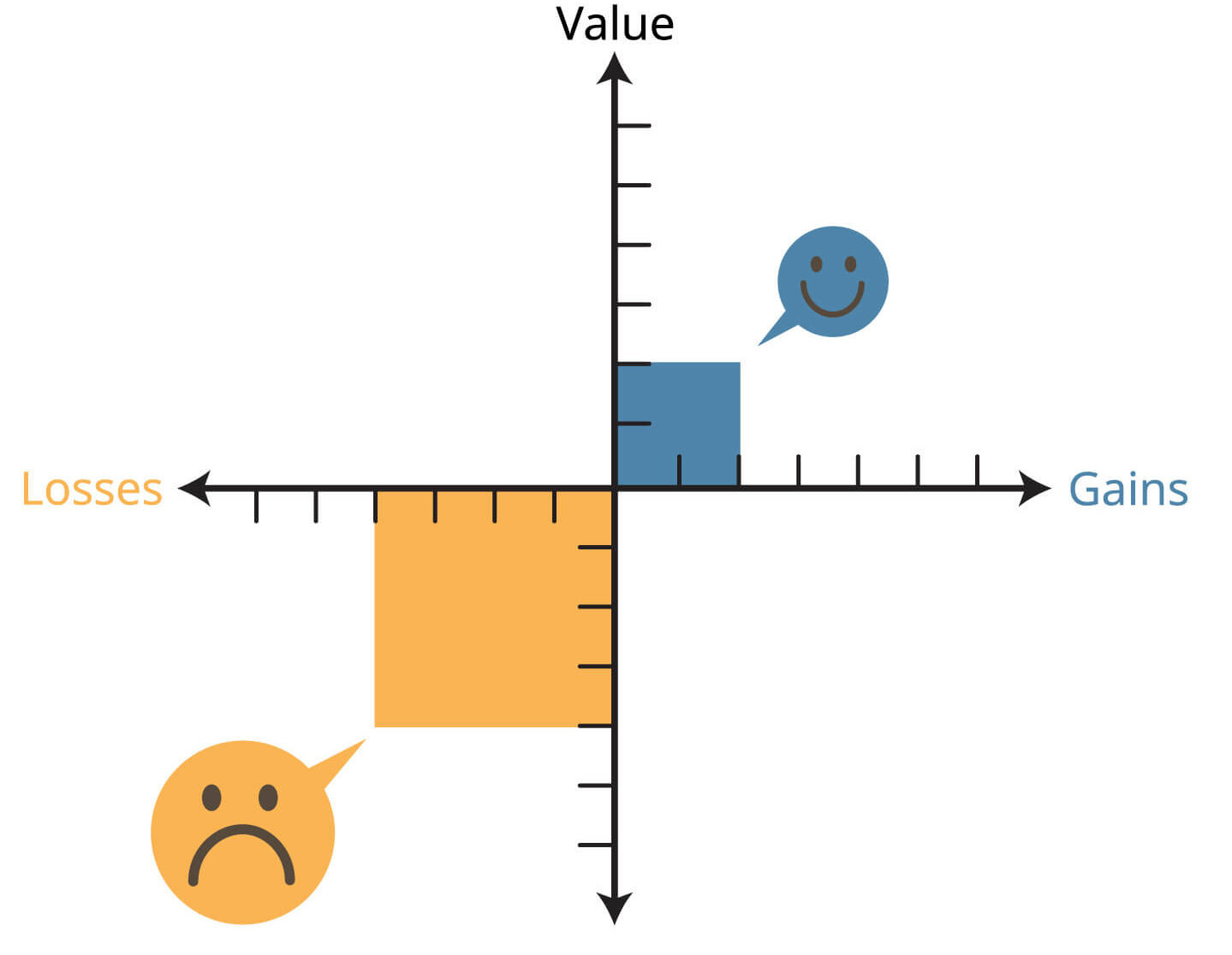Hooked on a Feeling

By nature, as human beings with emotions, we exhibit a tendency known in economics as loss aversion bias. The pain we associate with a loss is often more significant than the happiness equated with a gain of equal magnitude. If you’ve ever gambled, you know the feeling. it’s nice to win, but even the smallest loss can make you question placing a wager in the first place. Similarly, even knowing that odds are against us, we sometimes like to bet on long-shots vs. favorites, seeking a significant upside (happiness) to offset even losing a small amount of money (pain).

Thankfully, prudent investing is not like gambling. When you make a bet and lose, that money is lost. Your only hope now is to double down, take more risks, and hope you are smart enough to walk away if you break even.
With investing, actual losses are only realized when assets are sold, and lower prices are “locked in.” More commonly, paper losses recover as markets rebound, and long-term trends drive returns. Over time the odds are in your favor as an investor, and as you likely know, they are not as a gambler.
That distinction aside, our loss aversion bias has kicked in pretty aggressively as of late, with markets and portfolios down on the year. Emotions have come to the forefront, and long-term views are thrown away. Our bias is further compounded by the constant noise of ever-present news feeds, opinions, and hot takes. But when we take a step back, we can see that the current price levels are causing us all this angst were ones that we were enthusiastic about just over a year ago.

Source: Yahoo Finance

About Strategic
Founded in 1979, Strategic is a leading investment and wealth management firm managing and advising on total client assets of over $2.5 billion.
Disclosures
Strategic Financial Services, Inc. is registered with the Securities and Exchange Commission (SEC) as an Investment Advisor. The term “registered” signifies compliance with regulatory requirements and does not imply a certain level of skill or training.
The information provided on our website, including weekly market commentaries, financial planning articles, and other educational resources, is intended solely for educational purposes. It is designed to offer insights into financial planning and investment management, aiming to enhance understanding of financial concepts, strategies, and market trends. This content should not be interpreted as personalized investment advice or a recommendation for any specific strategy, financial planning approach, or investment product. Financial decisions are deeply personal and should be made considering the individual’s specific circumstances, goals, and risk tolerance. We recommend consulting with a professional financial advisor for personalized advice.
Please be aware that Strategic Financial Services, Inc. does not provide legal or tax advice. The content on this website is not intended to be used as such or as a substitute for legal or tax advice from a licensed professional. We advise seeking guidance from qualified legal and tax advisors regarding these matters.
Investment Risks and Portfolio Management.
The discussion of any investments on this website is for illustrative purposes only and provides no guarantee that the advisor will make any investments with the same or similar characteristics as those presented. The investments identified and described herein do not represent all the investments purchased or sold for client accounts. The selection of representative investments to discuss is based on various factors, including recent company news or earnings releases.
It should not be assumed that any investments discussed were or will be profitable. All investments involve risk, including the potential loss of principal. There is no assurance that investments mentioned will remain in client accounts at the time you view this information.
When index returns are mentioned on this site, they are provided as a general indicator of market conditions and are not representative of any client’s portfolio performance. Indices are unmanaged, do not incur management fees, costs, and expenses, and cannot be invested in directly. Therefore, their performance does not reflect the expenses associated with the management of an actual portfolio.
While index returns are used as a framework to report on general market conditions, they should not be construed as an indicator of future performance of any specific investment or portfolio. Discussion of index returns is intended to provide context and insight, not to suggest that clients will achieve similar results. Each client’s portfolio is managed according to their specific investment goals and financial situation.
The opinions and any forward-looking statements expressed in the articles and videos featured in our resource center are as of the date of publication. These statements are based on current laws, regulations, market conditions, and other relevant factors, including third-party data. Given the dynamic nature of financial and regulatory environments, as well as potential changes in market conditions or economic circumstances, the information provided may become outdated or may no longer be accurate.
We rely on third-party data to form our opinions and projections, which means that these are subject to the same uncertainties that affect all data-dependent analyses. As such, we advise readers to exercise caution and not rely solely on the statements made herein for making financial decisions. It is recommended that investors consult with a professional advisor who can help assess the relevance and accuracy of the content in light of the current economic climate and personal financial situation.
Our website contains links to third-party websites as a convenience to our users. Strategic Financial Services, Inc. does not control, endorse, or guarantee the content found on such sites. We are not responsible for the accuracy, legality, or content of the external site or for that of subsequent links.
Contact the external site for answers to questions regarding its content.
The inclusion of any link does not imply our endorsement of the site, nor does it imply any association with its operators. Use of any such linked website is at the user’s own risk.
